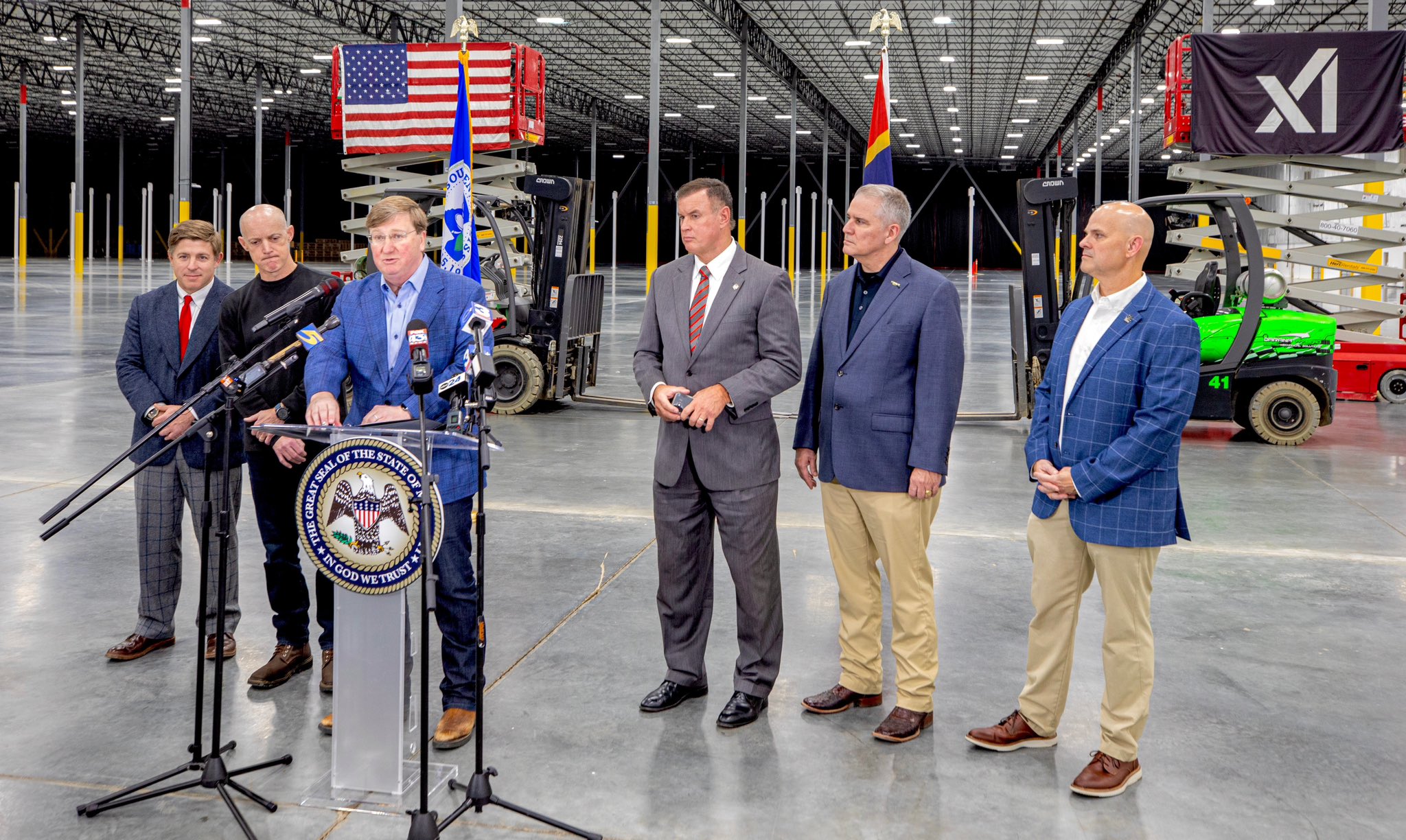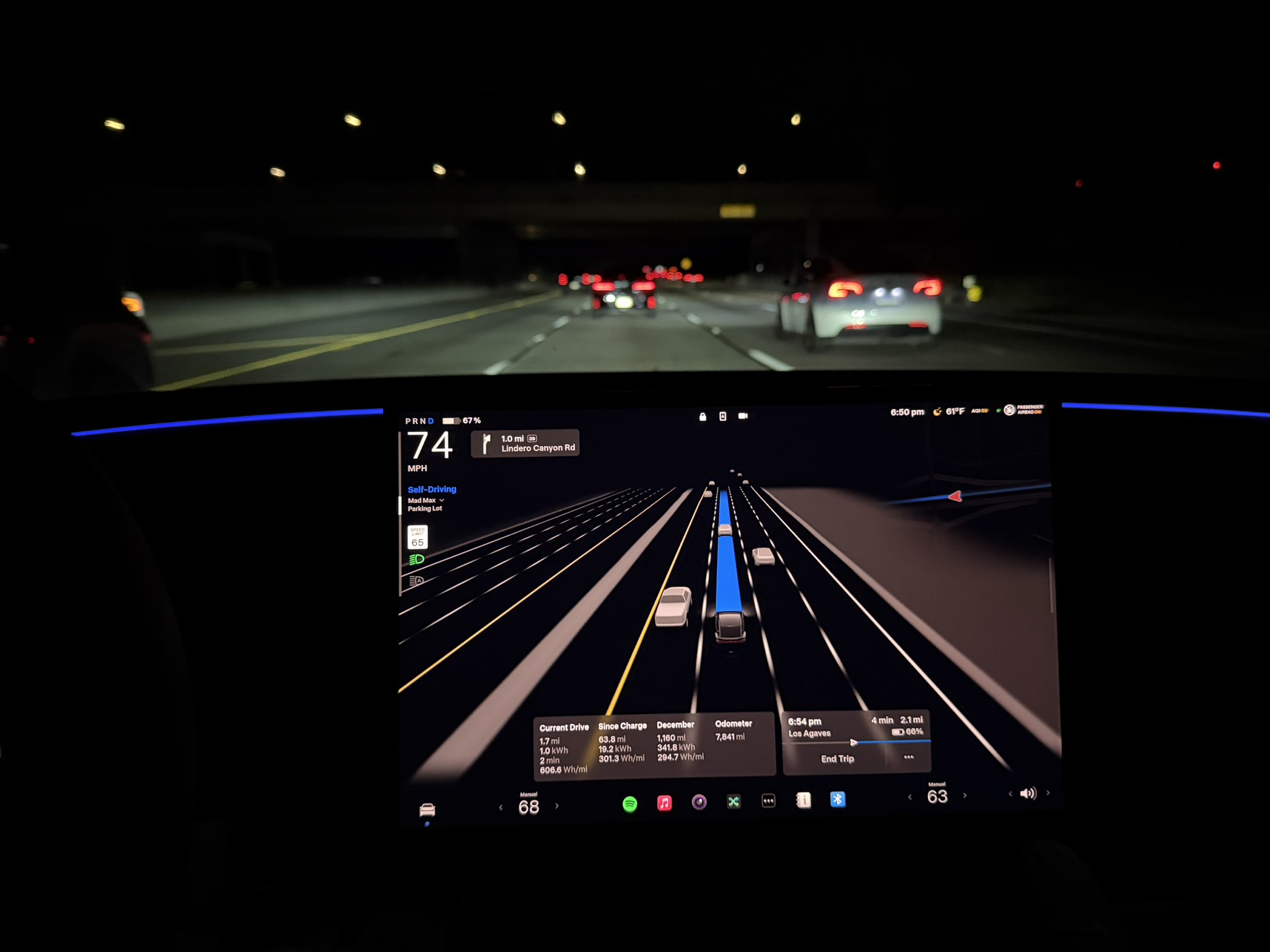Elon Musk
xAI supercomputer faces lawsuit over air pollution concerns
NAACP & environmental groups are suing Elon Musk’s xAI over turbine emissions at its Colossus supercomputer site.

The xAI supercomputer, Colossus, faces a potential lawsuit from the NAACP and the Southern Environmental Law Center over pollution concerns tied to its gas-powered turbines. The facility has sparked debate over its environmental impact versus economic benefits.
The xAI data center has been operational since last year. The company used pollution-emitting turbines without an air permit, citing a 364-day exemption. Southern Environmental Law Center attorney Patrick Anderson disputed xAI’s exemption, stating: “there is no such exemption for turbines — and that regardless, it has now been more than 364 days.”
The groups issued a 60-day notice of intent to sue under the Clean Air Act, challenging xAI’s permit application under review by the Shelby County Health Department.
According to AP, critics argue the turbines emit smog, carbon dioxide, nitrogen oxides, and formaldehyde, worsening health risks in an area with cancer rates four times the national average.
“The permit itself says emissions from the site ‘will be an area source for hazardous air pollutants,’” the Southern Environmental Law Center noted, alleging Clean Air Act violations.
Opponents claim xAI installed up to 35 turbines—exceeding the 15 requested—without community oversight, straining Memphis’s power grid.
xAI responded: “The temporary power generation units are operating in compliance with all applicable laws.”
The company highlighted its economic contributions, including billions in investments, millions in taxes, and hundreds of jobs. At an April community meeting, xAI’s Brent Mayo underscored that the “tax revenue will support vital programs like public safety, health, human services, education, firefighters, police, parks, and so much more.” He projected that xAI would generate over $100 million in tax revenue by next year. The company is also investing $35 million in a power substation and $80 million in a water recycling plant.
Additionally, xAI is transitioning to sustainable power, particularly Tesla Megapacks. It is actively working on demobilizing the gas turbines.
“The temporary natural gas turbines that were being used to power the [xAI’s] Phase I GPUs prior to grid connection are now being demobilized and will be removed from the site over the next two months,” shared the Greater Memphis Chamber. xAI brought Tesla Megapack batteries and a 150-megawatt substation online earlier this year.
Despite xAI’s expansion to a second 1-million-square-foot site, the lawsuit threat underscores tensions between innovation and environmental justice.

Elon Musk
Elon Musk’s xAI bets $20B on Mississippi with 2GW AI data center project
The project is expected to create hundreds of permanent jobs, dramatically expand xAI’s computing capacity, and further cement the Mid-South as a growing hub for AI infrastructure.

Elon Musk’s xAI plans to pour more than $20 billion into a massive new data center campus in Southaven, Mississippi, marking the largest single economic development project in the state’s history.
The project is expected to create hundreds of permanent jobs, dramatically expand xAI’s computing capacity, and further cement the Mid-South as a growing hub for AI infrastructure.
xAI goes MACROHARDRR in Mississippi
xAI has acquired and is retrofitting an existing facility in Southaven to serve as a new data center, which will be known as “MACROHARDRR.” The site sits near a recently acquired power plant and close to one of xAI’s existing data centers in Tennessee, creating a regional cluster designed to support large-scale AI training and inference.
Once completed, the Southaven facility is expected to push the company’s total computing capacity to nearly 2 GW, placing it among the most powerful AI compute installations globally. The data center is scheduled to begin operations in February 2026.
Gov. Tate Reeves shared his optimism about the project in a press release. “This record-shattering $20 billion investment is an amazing start to what is sure to be another incredible year for economic development in Mississippi. Today, Elon Musk is bringing xAI to DeSoto County, a project that will transform the region and bring amazing opportunities to its residents for generations. This is the largest economic development project in Mississippi’s history,” he said.
xAI’s broader AI ambitions
To secure the investment, the Mississippi Development Authority approved xAI for its Data Center Incentive program, which provides sales and use tax exemptions on eligible computing hardware and software. The City of Southaven and DeSoto County are also supporting the project through fee-in-lieu agreements aimed at accelerating development timelines and reducing upfront costs.
Founded in 2023 by Elon Musk, xAI develops advanced artificial intelligence systems focused on large-scale reasoning and generative applications. Its flagship product, Grok, is integrated with the social media platform X, alongside a growing suite of APIs for image generation, voice, and autonomous agents, including offerings tailored for government use.
Elon Musk highlighted xAi’s growth and momentum in a comment about the matter. “xAI is scaling at an immeasurable pace — we are building our third massive data center in the greater Memphis area. MACROHARDRR pushes our Colossus training compute to ~2GW – by far the most powerful AI system on Earth. This is insane execution speed by xAI and the state of Mississippi. We are grateful to Governor Reeves for his support of building xAI at warp speed,” Musk said.
Elon Musk
Tesla AI Head says future FSD feature has already partially shipped

Tesla’s Head of AI, Ashok Elluswamy, says that something that was expected with version 14.3 of the company’s Full Self-Driving platform has already partially shipped with the current build of version 14.2.
Tesla and CEO Elon Musk have teased on several occasions that reasoning will be a big piece of future Full Self-Driving builds, helping bring forth the “sentient” narrative that the company has pushed for these more advanced FSD versions.
Back in October on the Q3 Earnings Call, Musk said:
“With reasoning, it’s literally going to think about which parking spot to pick. It’ll drop you off at the entrance of the store, then go find a parking spot. It’s going to spot empty spots much better than a human. It’s going to use reasoning to solve things.”
Musk said in the same month:
“By v14.3, your car will feel like it is sentient.”
Amazingly, Tesla Full Self-Driving v14.2.2.2, which is the most recent iteration released, is very close to this sentient feeling. However, there are more things that need to be improved, and logic appears to be in the future plans to help with decision-making in general, alongside other refinements and features.
On Thursday evening, Elluswamy revealed that some of the reasoning features have already been rolled out, confirming that it has been added to navigation route changes during construction, as well as with parking options.
He added that “more and more reasoning will ship in Q1.”
🚨 Tesla’s Ashok Elluswamy reveals Nav decisions when encountering construction and parking options contain “some elements of reasoning”
More uses of reasoning will be shipped later this quarter, a big tidbit of info as we wait v14.3 https://t.co/jty8llgsKM
— TESLARATI (@Teslarati) January 9, 2026
Interestingly, parking improvements were hinted at being added in the initial rollout of v14.2 several months ago. These had not rolled out to vehicles quite yet, as they were listed under the future improvements portion of the release notes, but it appears things have already started to make their way to cars in a limited fashion.
Tesla Full Self-Driving v14.2 – Full Review, the Good and the Bad
As reasoning is more involved in more of the Full Self-Driving suite, it is likely we will see cars make better decisions in terms of routing and navigation, which is a big complaint of many owners (including me).
Additionally, the operation as a whole should be smoother and more comfortable to owners, which is hard to believe considering how good it is already. Nevertheless, there are absolutely improvements that need to be made before Tesla can introduce completely unsupervised FSD.
Elon Musk
Tesla’s Elon Musk: 10 billion miles needed for safe Unsupervised FSD
As per the CEO, roughly 10 billion miles of training data are required due to reality’s “super long tail of complexity.”

Tesla CEO Elon Musk has provided an updated estimate for the training data needed to achieve truly safe unsupervised Full Self-Driving (FSD).
As per the CEO, roughly 10 billion miles of training data are required due to reality’s “super long tail of complexity.”
10 billion miles of training data
Musk comment came as a reply to Apple and Rivian alum Paul Beisel, who posted an analysis on X about the gap between tech demonstrations and real-world products. In his post, Beisel highlighted Tesla’s data-driven lead in autonomy, and he also argued that it would not be easy for rivals to become a legitimate competitor to FSD quickly.
“The notion that someone can ‘catch up’ to this problem primarily through simulation and limited on-road exposure strikes me as deeply naive. This is not a demo problem. It is a scale, data, and iteration problem— and Tesla is already far, far down that road while others are just getting started,” Beisel wrote.
Musk responded to Beisel’s post, stating that “Roughly 10 billion miles of training data is needed to achieve safe unsupervised self-driving. Reality has a super long tail of complexity.” This is quite interesting considering that in his Master Plan Part Deux, Elon Musk estimated that worldwide regulatory approval for autonomous driving would require around 6 billion miles.
FSD’s total training miles
As 2025 came to a close, Tesla community members observed that FSD was already nearing 7 billion miles driven, with over 2.5 billion miles being from inner city roads. The 7-billion-mile mark was passed just a few days later. This suggests that Tesla is likely the company today with the most training data for its autonomous driving program.
The difficulties of achieving autonomy were referenced by Elon Musk recently, when he commented on Nvidia’s Alpamayo program. As per Musk, “they will find that it’s easy to get to 99% and then super hard to solve the long tail of the distribution.” These sentiments were echoed by Tesla VP for AI software Ashok Elluswamy, who also noted on X that “the long tail is sooo long, that most people can’t grasp it.”








